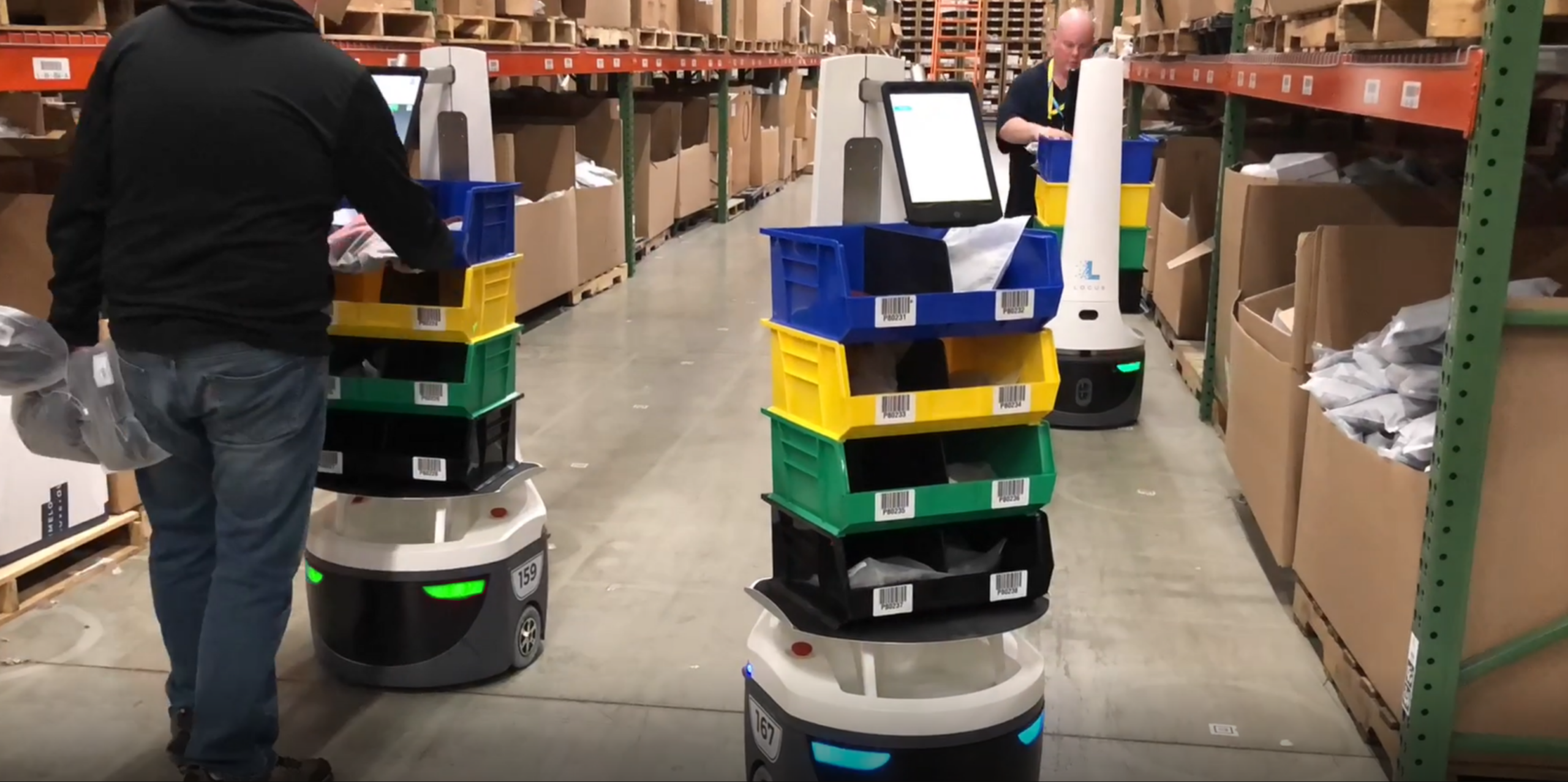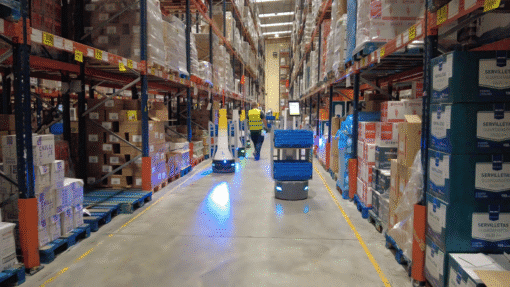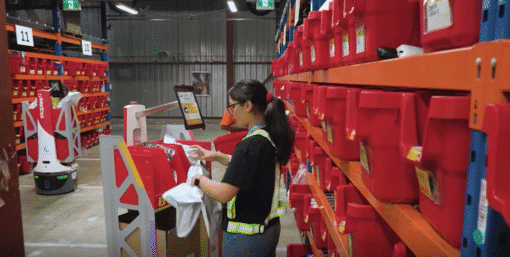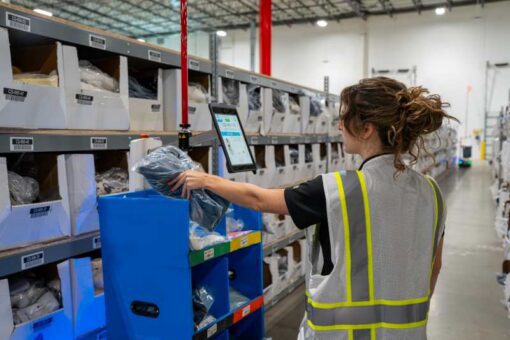WP: How to achieve 400 UPH with Locus Fast Pick
WP: How to achieve 400 UPH with Locus Fast Pick Download Now!
Why Warehouse Managers Quit and How Automation Can Help Retain Them
Mary Hart, Sr. Content Marketing Manager

The role of warehouse managers has become increasingly critical and challenging due to the surge in e-commerce and the ongoing demand for faster delivery times. Despite their pivotal position in the supply chain, many warehouse managers are choosing to leave their jobs with high turnover rates and a shortage of experienced professionals worsening the industry's labor crisis. The relentless pressure to recruit and retain staff, coupled with overwhelming workloads, is driving many warehouse managers to quit. However, automation offers a promising solution to alleviate these burdens, streamline operations, and create a more resilient and satisfied workforce.
5 Reasons Warehouse Managers are Quitting
Warehouse managers face numerous challenges that contribute to high turnover rates:
1.Increasing Workload
Managers are often stretched thin, handling multiple roles and responsibilities. The pressure to oversee day-to-day operations, manage staff, and ensure timely deliveries can be overwhelming for even the most experienced manager.
2.High Stress Levels
The constant demand for faster processing and the need to troubleshoot issues in real-time lead to high stress levels. Managers frequently deal with unexpected problems, such as equipment failures or staffing shortages, adding to their stress.
3.Labor Shortages
Finding and retaining skilled workers is a persistent challenge. With a limited talent pool and high turnover rates among warehouse staff, managers often have to fill in gaps themselves, further increasing their workload.
Along with increased workloads, high turnover rates are increasing warehouse costs. According to the Society for Human Resource Management, replacing an employee can cost up to nine months' salary. For a warehouse manager earning $80,000 annually, that's a potential $60,000 hit per replacement.
Let's look at the numbers:
- 3.5 million people quit their jobs as of July 2024 (Bureau of Labor Statistics)
- The warehousing industry saw an increase of 39,000 job quits (Bureau of Labor Statistics)
- By 2030, the US warehousing industry is expected to have 2.1 million unfilled jobs (Deloitte)
This labor shortage also leads to the next struggle — training replacements that you’re able to find.
4.Training New Employees
High turnover among warehouse staff means managers spend a significant amount of time training new hires. This not only consumes time but also diverts their attention from strategic tasks that could improve operations.
5.Technological Demands
Modern warehouses require managers to be proficient with advanced technology and automation systems. For many, this learning curve adds another layer of difficulty to their already demanding roles.
How Automation Can Help Retain Warehouse Managers
Automation can significantly reduce the burden on warehouse managers, addressing many of the issues that drive them to quit:
Reducing Workload
Automated systems can take over repetitive and time-consuming tasks, such as inventory tracking and order picking. This allows managers to focus on more strategic activities and reduces their overall workload.
Addressing Labor Shortages
Autonomous Mobile Robots (AMRs) and other automated solutions can fill in the gaps caused by labor shortages. These solutions work with your current associates to create consistent productivity even when human resources are limited.
Streamlining Training
With automation handling many routine tasks, new employees require less training to become productive. This reduces the training burden on managers and allows them to focus on mentoring and developing their team.
Enhancing Technological Proficiency
Modern automation systems are designed to be user-friendly and intuitive. Managers can quickly learn to operate these systems, which can also provide valuable data insights to help them make informed decisions.
Lowering Stress Levels
By streamlining operations and reducing the likelihood of errors, automation can help create a smoother, less stressful work environment. Managers can rely on automated systems to handle routine processes, freeing them up to manage exceptions and improve overall efficiency.
The Path Forward
The challenges of hiring and retaining warehouse managers are significant, but they're not insurmountable. In the face of escalating warehouse management labor challenges, automation emerges as a powerful ally. The integration of AMRs and other automated solutions can significantly alleviate the pressure on warehouse managers, making their roles more manageable and less stressful. By automating routine tasks, enhancing operational efficiency, and providing valuable data insights, automation creates a more sustainable and attractive work environment for both existing and potential managers.
Want to find out how to overcome your warehouse management labor struggles with automation solutions designed to streamline warehouse operations? Let’s talk!




